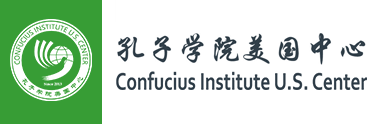Howard Schaefer
/in /by CIUS Center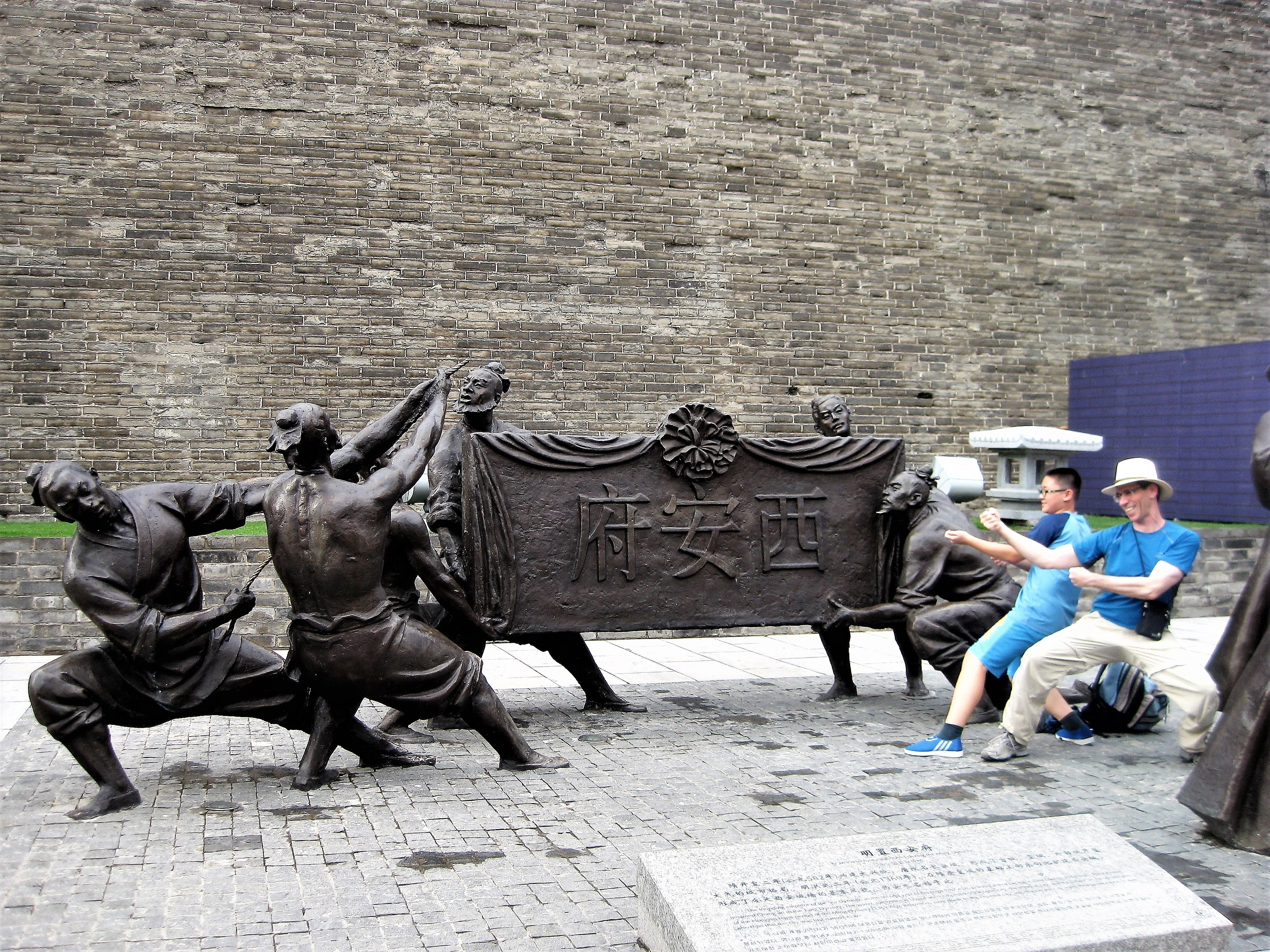
Aligning Principles
By Howard Schaefer
Last July my wife, Teresa taught in China for 2 weeks at Shaanxi Normal University (SNNU) in Xi’an, Shaanxi, China. Having learned about this opportunity from her friend, Victoria, Teresa was excited not only to explore China but for the opportunity to teach Chinese students in such a prestigious university. In sharing her SNNU teaching experiences with Teresa, Victoria described how her husband, who accompanied her in the prior year found the experience ‘life-changing.’
Teresa thought a ‘life-changing’ experience would be good for me. At that time, I was out of work, and Teresa wanted me to redirect my energies from simply searching for a job to fulfill a dream. Though I wanted to go, I was reluctant due to the cost and time. However, this was not the first time I was offered an opportunity to travel to China and I was intrigued by what seemed like a second chance. I was presented with the first opportunity as a 17-year-old Tai Chi student. Years later, I wondered how different my life would have been if I had traveled to China back then.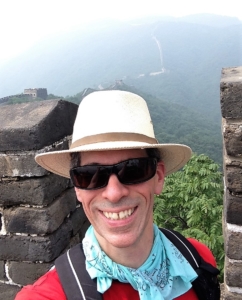
I started studying Tai Chi when I was 15, along with my older brother. I was my teachers youngest Tai Chi student. My teacher, Mr. Sidney Austin, beseeched my father to learn Tai Chi with my brother and me, stressing how good it would be for our family to learn together, in addition to the unrivaled health benefits. He offered to teach my father for free and my brother and I only needed to pay what we could afford. Such kindness. Such generosity. I learned so much from my teacher, money could never repay.
My brother and I studied diligently with Mr. Austin, 2 nights a week, and if our parents could drive us, Saturdays and Sundays too. During the summer, we frequently went to class twice a day, 4 days a week, and weekends whenever possible. As we improved our Tai Chi, we graduated into new found areas of pain.
In Mr. Austin’s school, a blackboard always included the tenet: Learn Kindness, Learn Generosity, Learn Kung-Fu. Mr. Austin had taught Kung-Fu for many years before he started studying Tai Chi with Master Jou Tsung Hwa. On Sundays, sometimes Mr. Austin would pick my brother and I up so we could study with Master Jou. Master Jou stressed a key principle, “To master Tai Chi, you know yourself.” During our 2nd year of Tai Chi, Master Jou arranged a trip to Taiwan for his students to study with Tai Chi masters. It would have taken all my savings, $5,500, to go, and at the time, I didn’t realize this would have been a small price to pay for such an insightful and personal experience.
In the years that ensued, I periodically lapsed out of and returned to Tai Chi practice many times. In retrospect, periods where I intently practiced Tai Chi corresponded with successes in creativity, learning, and performance.
As I contemplated the decision to travel with my wife, I wondered if traveling to China would put me back on the right path. Would my life be altered and how so? Each morning, at that crack of dawn, would I practice Tai Chi in a plaza with 100’s or even thousands of people? Would I start sketching and drawing? Would I know myself
With this in mind, along with a sharp drop in ticket prices, I decided to jump at the opportunity, and go to China. Upon purchasing my non-refundable ticket, I was instantly committed. In preparation for my travels, rather than planning to be a simple tourist, soaking in the sites, history, and culture, I endeavored to learn to speak Mandarin to further justify my travel. I found a few Ted Talks discussing Chinese culture, and a few more talking about rapidly learning to speak Chinese through immersion. In each of the Talks, the presenters talked about removing self-limiting boundaries and opening possibilities, as well as the honest and frank conversations they experienced with the Chinese people they met. Could I learn to speak Chinese? Could I learn to be frank and honest with myself? Could I exceed my boundaries?
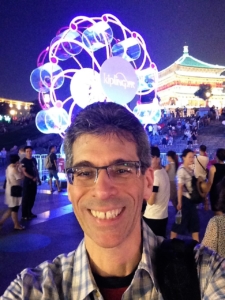 For a few weeks, before we left, I started learning to speak Chinese. Luckily my library had an MP3 course in Mandarin, otherwise, I may have learned Cantonese instead. I completed 15 half hour lessons before we left for China. While in China, I found it a little difficult communicating in Chinese with my limited vocabulary. Luckily, I rarely had to rely on my minimal Mandarin speaking skills, as the Chinese people and I usually innovated some means of communication. Whenever we were unsure of our path, inevitably a kind stranger directed us on our journey, usually in English, but always understood.
For a few weeks, before we left, I started learning to speak Chinese. Luckily my library had an MP3 course in Mandarin, otherwise, I may have learned Cantonese instead. I completed 15 half hour lessons before we left for China. While in China, I found it a little difficult communicating in Chinese with my limited vocabulary. Luckily, I rarely had to rely on my minimal Mandarin speaking skills, as the Chinese people and I usually innovated some means of communication. Whenever we were unsure of our path, inevitably a kind stranger directed us on our journey, usually in English, but always understood.
In China, I was never able to get up early enough to beat the summer heat and practice Tai Chi. To my surprise, I never actually saw anyone practicing Tai Chi. Maybe my Tai Chi opportunities all occurred whilst I slept? I also anticipated sketching and drawing more and though we visited a few galleries in Xi’an exhibiting calligraphy, I only picked up a brush to draw in our final days in Beijing. I was first prompted by retirees. I watched the retirees practicing their calligraphy on cement patios in a park, using water as their medium, applied with long sponge-tipped brushes. Later that night, in another part of Beijing, an artist asked my wife and I to visit his studio/gallery. We were so tired after our earlier exhausting summertime trip to Badaling to see the Great Wall of China, but we acquiesced due to my artistic curiosity. Our artist host, upon learning that I previously studied art, set up brush and ink, inviting me to draw. I sketched the artist, and with a brush stroke, another obstacle was removed from my path.
In nearly all my interactions with the Chinese people in China, with or without verbal language, I felt I achieved a level of understanding. Maybe being juxtaposed in a completely foreign setting befitted me, requiring me to slow down, and capture each moment. This realization resonated with a lesson I learned from my Tai Chi teachers. Tai Chi is practiced slowly, thus enabling consideration of many possibilities. My Chinese travel experience taught me to contemplate the possibilities and to know myself.
Rachel Lietzow
/in /by CIUS CenterUnexpected Opportunities
By Rachel Lietzow
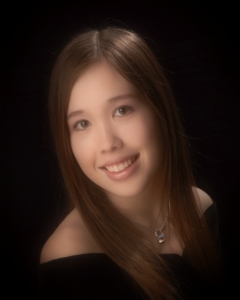 My Hongkongese mother started me off on my Chinese learning path by teaching me Cantonese from childhood. One of my first foreign language fumbles happened when I was a toddler. I still hear about this story today—my mother chuckles when she describes how difficult it was to teach me how to say “bone” in Cantonese, pronounced gwat. Somehow my imitation came out as “brat.” She would tell me the proper way of saying “bone” each day until I could pronounce it. I never would have guessed that this was simply the beginning to my interest in foreign language. Fast-forward a decade, Cantonese had taken a special place in my life—it is not only my roots and memories but also my connection to my Hong Kong family.
My Hongkongese mother started me off on my Chinese learning path by teaching me Cantonese from childhood. One of my first foreign language fumbles happened when I was a toddler. I still hear about this story today—my mother chuckles when she describes how difficult it was to teach me how to say “bone” in Cantonese, pronounced gwat. Somehow my imitation came out as “brat.” She would tell me the proper way of saying “bone” each day until I could pronounce it. I never would have guessed that this was simply the beginning to my interest in foreign language. Fast-forward a decade, Cantonese had taken a special place in my life—it is not only my roots and memories but also my connection to my Hong Kong family.
My curiosity about Chinese culture grew further upon my introduction to Mandarin, which came through watching a Mandarin-dubbed historical Korean television series. Although I barely understood anything the first time hearing Mandarin, the interesting sounds of the language did not fail to inspire me. My young mind spiraled with questions—why do some Cantonese words bear no resemblance to the same words in Mandarin? Why are there two different systems of writing? What parts of the languages overlap? Not knowing any other way to answer these questions, I settled on trial-and-error. After about three years of watching television shows in Mandarin, I grew comfortable listening to Mandarin speakers. Unfortunately, my hometown did not offer many opportunities to meet them. I still was uncertain about my ability to speak the language myself.
Coming to the University of Kentucky in 2015, I quickly made many Chinese international friends. Through them, I found out about the Confucius Institute. They invited me to a Chinese New Year celebration hosted by the Confucius Institute, called “East Meets West,” a function that bridged cultural differences through performances of fashion, music, and dance. The atmosphere was one of excitement and anticipation. That evening, my pride in Chinese heritage was reinvigorated. I am extremely grateful that the Confucius Institute hosts so many events that teach Chinese culture—I had never expected to find pieces of China in Kentucky.
My next encounter with the Confucius Institute came when I was given the opportunity to represent the UK in the Chinese Bridge competition at the University of Maryland. Besides granting me the chance to see Washington D.C. for the first time, the Confucius Institute made it possible for me to meet passionate Chinese learners from across the nation. As a freshman, I had never participated in an event like this, so I initially did not know what to expect. The idea of having to memorize a speech and compete had scared me. However, everyone I met at the competition was extremely personable. We came from different backgrounds and learned Mandarin at different times and in different ways. A common interest in Chinese language and culture brought us together. The Chinese Bridge left me with many new friends and memories. This event not only displayed a talented group of Chinese learners but also presented many unique stories.
A few of the competitors described their experiences studying abroad in China. Their stories highlighted the abundance of learning opportunities in other countries and the wonderful memories that marked a new understanding of Chinese culture. These speeches particularly inspired me to study in China, which I did this past summer at Zhejiang University. My Mandarin has improved since, and I have met many friends from around the world in the process. Through its many opportunities, the Confucius Institute has impacted my understanding of China and has furthered my dreams.
Dennis Delehanty
/in 2016 /by CIUS Center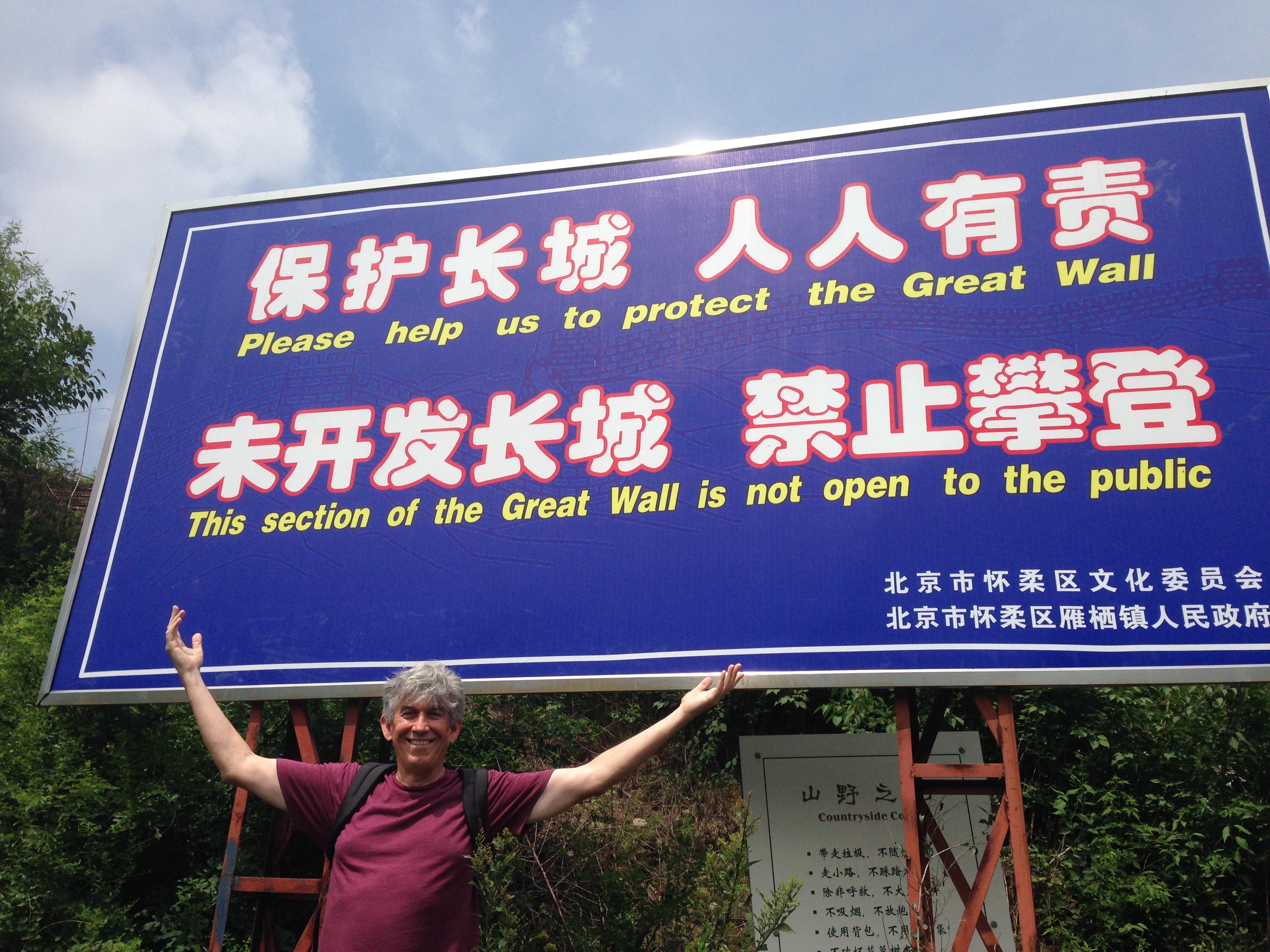
To Learn Mandarin: A Personal Journey Through the Decades
By Dennis Delehanty
As a teenager in the 1960s, growing up in suburbs south of Boston, I fell under the grip of the tantalizing mysteries of the Chinese language. At home, I would leaf through weekly issues of Life and Look magazines and ponder the inscriptions on signs carried aloft by Chinese citizens. Someday, I told myself, I would uncover the meanings of those symbols.
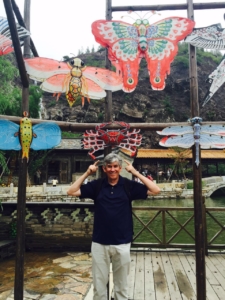 So, entering college as a student of Russian (as well as French and Spanish), I resolved to take up the study of Mandarin. But my small college in Maine offered no courses in that language. Following graduation from college, undeterred, I enrolled in an evening course in Mandarin at the Cambridge Center for Adult Education near Harvard University, and thus launched a haphazard, often frustrating trajectory in the study of Chinese. That journey wound through George Washington and Georgetown universities, the State Department’s Foreign Language Institute’s early morning classes … then, after a 15-year hiatus, resumed in intensive tutoring classes in 1999 and later in independent study at George Mason University. If I had not learned to speak Chinese as fluently as I could in Western languages, at least I had taught myself to read Chinese, plowing through several longish 20th-century novels by such authors as Lu Xun, Ba Jin, Lao She, Shen Congwen, and Yu Hua.
So, entering college as a student of Russian (as well as French and Spanish), I resolved to take up the study of Mandarin. But my small college in Maine offered no courses in that language. Following graduation from college, undeterred, I enrolled in an evening course in Mandarin at the Cambridge Center for Adult Education near Harvard University, and thus launched a haphazard, often frustrating trajectory in the study of Chinese. That journey wound through George Washington and Georgetown universities, the State Department’s Foreign Language Institute’s early morning classes … then, after a 15-year hiatus, resumed in intensive tutoring classes in 1999 and later in independent study at George Mason University. If I had not learned to speak Chinese as fluently as I could in Western languages, at least I had taught myself to read Chinese, plowing through several longish 20th-century novels by such authors as Lu Xun, Ba Jin, Lao She, Shen Congwen, and Yu Hua.
From 1983 and through the ensuing decades, a dozen business trips to China punctuated my study of Mandarin and afforded practical linguistic encouragement for my further efforts to conquer that language. How that country transformed itself from the Mao jackets and bicycles of the early 1980s to the skyscrapers and sprawl of today!
My connection to China suddenly grew even stronger, when quite by accident my daughter Carmen took up the study of Chinese at Haverford College. After her graduation, the Confucius Institute awarded her a year-long scholarship to study the language at Beijing Language and Culture University, after which she remained in Beijing for three years, working for a company that helps Chinese high school students apply to top U.S. colleges and universities.
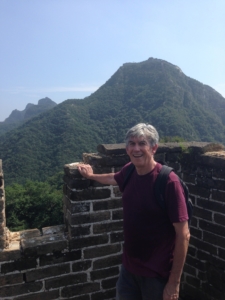 In 2012, I retired from the Department of State, winding up a 37-year-long career in government. Reflecting that I should find some way to show appreciation for the Confucius Institute’s generosity towards our family, I began to attend weekly presentations about Chinese affairs sponsored by George Mason’s Confucius Institute. By late 2014, this casual contact had led to the formation of a Chinese Reading Club at George Mason’s Confucius Institute, which by mid-2016 boasted of six experienced Chinese learners who could read and discuss difficult, highly literary shorter works of such esteemed Chinese authors as Mo Yan, Liu Zhenyun, Bi Feiyu and Su Tong. We suspect that this advanced Chinese Reading Group – whose members are not native speakers – may be unique within the United States. The challenges and joys (!) of our biweekly group meetings to decipher the cultural, linguistic and literary secrets of the short stories we read, in Chinese, under the expert guidance of our CI teachers He Xiao and Wang Lihong. have brought us to a deeper understanding of China and the Chinese mind through modern literature – even to those in our group who have lived and studied China and Chinese for decades.
In 2012, I retired from the Department of State, winding up a 37-year-long career in government. Reflecting that I should find some way to show appreciation for the Confucius Institute’s generosity towards our family, I began to attend weekly presentations about Chinese affairs sponsored by George Mason’s Confucius Institute. By late 2014, this casual contact had led to the formation of a Chinese Reading Club at George Mason’s Confucius Institute, which by mid-2016 boasted of six experienced Chinese learners who could read and discuss difficult, highly literary shorter works of such esteemed Chinese authors as Mo Yan, Liu Zhenyun, Bi Feiyu and Su Tong. We suspect that this advanced Chinese Reading Group – whose members are not native speakers – may be unique within the United States. The challenges and joys (!) of our biweekly group meetings to decipher the cultural, linguistic and literary secrets of the short stories we read, in Chinese, under the expert guidance of our CI teachers He Xiao and Wang Lihong. have brought us to a deeper understanding of China and the Chinese mind through modern literature – even to those in our group who have lived and studied China and Chinese for decades.
I am personally grateful for the opportunity that the Confucius Institute has provided to advanced learners of Chinese in the Washington, D.C. area through the formation and support of our Reading Group. I can only suggest that the Confucius Institute at George Mason might consider promoting the model of this Reading Group to other Confucius Institutes in the United States and worldwide, as more and more Westerners embark on that wonderful voyage to learn the world’s most spoken (and read) language: Mandarin Chinese.
Deja Watkins
/in /by CIUS CenterStarTalk
By Deja Watkins
 I have been learning Chinese for a little over five years now. I started learning Chinese when I first entered Enloe High School and continued learning Chinese there until I graduated. I continued to take Chinese classes at my current university. I like learning about the cultures of others, and I wanted to learn about Chinese culture. Because of this interest, I was really excited to find out that the high school I was going to attend offered Chinese. It was through my Chinese class at Enloe that I learned about the Confucius Institute. There were resources and events in class that was provided by the Confucius Institute at North Carolina State University. For example, Chinese students from NC State who came by my high school classroom to give a presentation on China and their experiences being in the United States. I was able to speak with a couple of the students and learn more about them. I also participated in the Chinese club that was offered at Enloe. Through the Chinese club, and in class, I participated in various events and festivals such as the Mid-Autumn Festival. There were even days where my teacher brought in Chinese food for the class to try. I even began to participate in the annual Chinese New Year Festival in Raleigh, where I saw various cultural performances and many exhibits.
I have been learning Chinese for a little over five years now. I started learning Chinese when I first entered Enloe High School and continued learning Chinese there until I graduated. I continued to take Chinese classes at my current university. I like learning about the cultures of others, and I wanted to learn about Chinese culture. Because of this interest, I was really excited to find out that the high school I was going to attend offered Chinese. It was through my Chinese class at Enloe that I learned about the Confucius Institute. There were resources and events in class that was provided by the Confucius Institute at North Carolina State University. For example, Chinese students from NC State who came by my high school classroom to give a presentation on China and their experiences being in the United States. I was able to speak with a couple of the students and learn more about them. I also participated in the Chinese club that was offered at Enloe. Through the Chinese club, and in class, I participated in various events and festivals such as the Mid-Autumn Festival. There were even days where my teacher brought in Chinese food for the class to try. I even began to participate in the annual Chinese New Year Festival in Raleigh, where I saw various cultural performances and many exhibits.
Through the Confucius Classroom at Enloe, I was able to travel to Troy University to participate in the StarTalk program. I participated in the StarTalk program for two summers and thoroughly enjoyed my time in the program. Through this, I was able to improve my Chinese speaking skills and learn more about Chinese culture. For example, I learned how to lion dance, dragon dance, and umbrella dance. I even learned how to do a little bit of Taiji. I met other students from different parts of the United States who had the same interest in Chinese as I did, which really helped me to learn Chinese culture and language skills that I did not know before. It was wonderful to even be able to learn other cultural activities from my teachers, such as calligraphy and Chinese chess. The Cultural Presentation, or Fashion Show, at the end of the program, was really interesting as everyone dressed up as one of the many minorities in China. Before then I had only heard of a few minorities such as Tibetan and Manchu, but during I learned about many others.
The Enloe Confucius Classroom, of the NCSU Confucius Institute, has changed my life in many ways. Before learning Chinese with the Confucius Classroom at Enloe, I only had knowledge about American culture. The Confucius Classroom has also helped me to prepare for college. When I entered college, I was able to connect with the Confucius Institute at my school and continue to build my knowledge of Chinese language and culture. The Confucius Classroom truly helped me start my education of Chinese culture and language as well as provided me resources as to what I can do to improve my abilities. I have connected with many people, including Chinese teachers and friends, whom I still continue to stay in touch with long after we parted ways to return back to our respective homes. I have met so many kind people who have been more than helpful and patient in teaching me Chinese. I honestly could not have asked for a better experience. Everyone I have met has been very respectful and eager to aid me in any way possible throughout my entire experience in learning Chinese. I happily look forward to improving my fluency in Chinese, participating in more activities and events, and continuing to be part of the Confucius Institute.
David Cole
/in /by CIUS Center
More Similar than Different
By David Cole
I am not a student of language, nor am I particularly adept at comprehending or learning foreign languages. I am, however, an ardent student of culture and art. It was through a humanities-based fellowship at the University of Kentucky that I was introduced to our Confucius Institute and the opportunity to undertake a learning experience in Shanghai, Xi’an, and Beijing.
As an American, my knowledge of Chinese art and literature is woefully underdeveloped. For years I have been exposed to the stories of the great masters in the European and American traditions, but never have I encountered Chinese writing outside of Wu Cheng’en’s Journey to the West. I understand that this is akin to someone being unfamiliar with European writing outside of Chaucer’s Canterbury Tales and am thankful that I’ve been able to begin remedying my situation. During my visit to China, I was introduced to the work of Lu Xun and Bei Dao, writers I am looking forward to pursuing study of as I seek to improve my literacy of writers and poets outside of the American canon.
Though this brief foray into the incredibly deep cultural pool that is Chinese literature stands out as a course to follow in my coming days, I must also give credence to the ways in which the trip shaped me during its course.
I had never been outside of my home country before traveling to China but had long harbored dreams of globetrotting. Arriving in China was tiring and I was completely awash in culture shock. I’d expected differences, of course, but being on the opposite side of the globe opened my eyes to not just the range of differences between Chinese culture and my own, but the striking similarities.
Those similarities came, without fail, through my interactions with people.
An astonishing number of people I interacted with in China proved positive in their spirit and livelihood. Never have I found myself surrounded by people who I couldn’t verbally understand, but wholeheartedly felt a connection towards.
Here is an anecdote to prove my point:
When my group made it to the City Wall in Xi’an, many people were excited by the chance to ride around its perimeter on bikes. However, I come from an area in which biking is uncommon due to the terrain, therefore, I had never learned to ride one myself. Feeling adventurous, I rented one anyway and received some beginner’s tips from two of my fellows. However, when they took off on their own and I was left to stutter about on my bike as if I were a toddler. As I experienced this embarrassment, a Chinese family of four approached me and began to demonstrate to me, through gestures and sound effects, the proper way to ride. My trouble continued, but their kindness was powerful. In time, another couple joined us and I found myself surrounded by six locals all trying to teach me how this whole biking thing worked.
I still don’t know how to ride a bike, but that period of time atop the old wall in Xi’an gave me something more valuable than a timeless skill: a true sense of the universal nature of humanity. I could not previously imagine the strength of human kinship, even in the face of a daunting language barrier, before the Confucius Institute sent me to China. For the opportunity to witness firsthand the indomitable strength of personal bonds across cultures, I am certainly indebted and immensely thankful.
Confucius Institute U.S. Center
Washington, DC 20036
(202) 864-6485
Programs Overview
CIUS Center Resources
Socials
Subscribe
Click the link below to subscribe to our e-newsletter.
Subscribe Now
